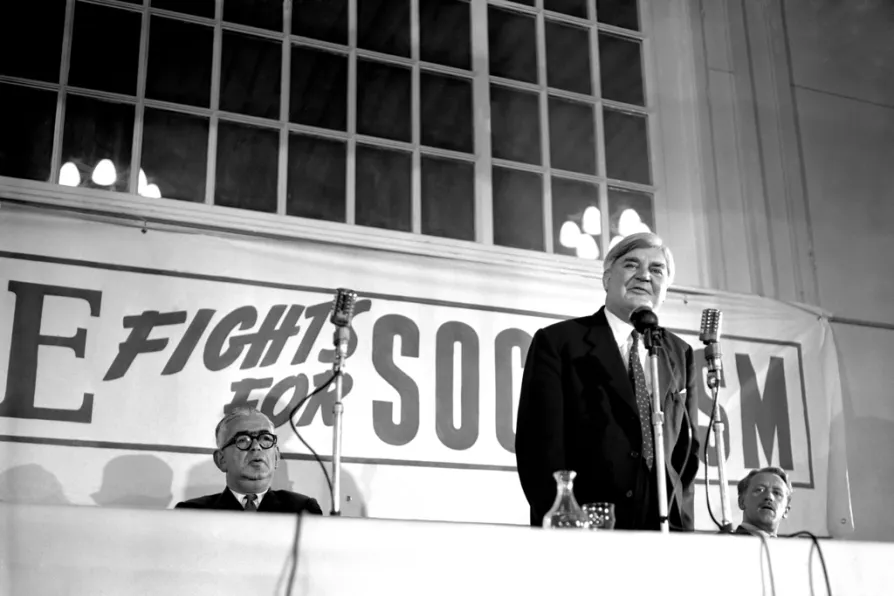Corbyn’s intervention exposes a corrupted system, writes CLAUDIA WEBBE

 Aneurin ‘Nye’ Bevan was a great supporter of the Tribune for most of its early years and sat on its board
Aneurin ‘Nye’ Bevan was a great supporter of the Tribune for most of its early years and sat on its board
After a seven-month absence left-wing magazine Tribune was relaunched in Liverpool this week at two packed meetings, at The World Transformed and at the Labour Party conference.
The panel at the Labour Party launch included Jon Trickett MP, Class think tank director and Labour PPC for Chingford & Woodford Green, Faiza Shaheen, Tribune associate editor and Morning Star contributor Marcus Barnett and Unite assistant chief of staff Adrian Weir.
In welcoming Tribune’s reappearance, the Morning Star is pleased to publish Adrian Weir’s contribution to the relaunch.

The creative imagination is a weapon against barbarism, writes KENNY COYLE, who is a keynote speaker at the Manifesto Press conference, Art in the Age of Degenerative Capitalism, tomorrow at the Marx Memorial Library & Workers School in London

At the very moment Britain faces poverty, housing and climate crises requiring radical solutions, the liberal press promotes ideologically narrow books while marginalising authors who offer the most accurate understanding of change, writes IAN SINCLAIR

It is only trade union power at work that will materially improve the lot of working people as a class but without sector-wide collective bargaining and a right to take sympathetic strike action, we are hamstrung in the fight to tilt back the balance of power, argues ADRIAN WEIR

Our roving AGM from this Thursday through Sunday and our upcoming Morning Star Conference 2025 on June 14 in London are great opportunities to meet the team and help plan the way forward, says editor BEN CHACKO










